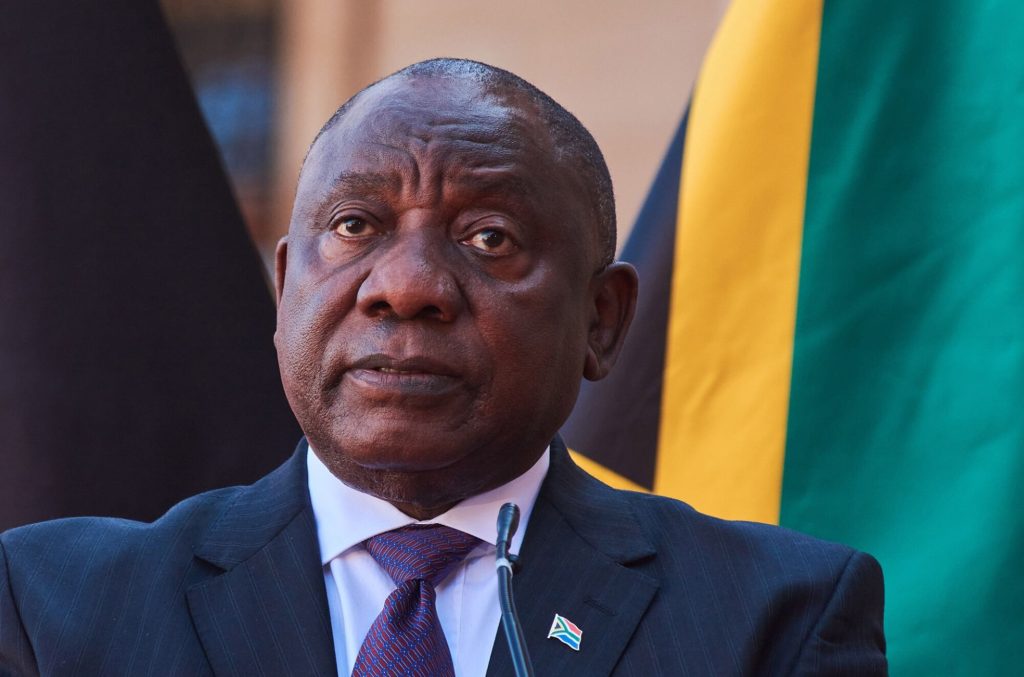Last week, I began the first export shipment from the Port of Durban of goods produced by South African companies to other African countries under the preferential trade provisions of the African Continental Free Trade Area (AfCFTA).
More products and shipments are expected to follow as South African companies sell South African-made products to Africa's large free trade area. Exports to AfCFTA countries already account for nearly a quarter of South Africa's global exports. This number will increase very dramatically in the future.
advertisement
Continue reading below
South African businesses have a great opportunity to take advantage of the AfCFTA by exporting their goods to other parts of the African continent. To seize this great opportunity, as a nation we must ensure that our products get from the factory gate, onto the ship, and on to their destination with minimal delay and cost.
In recent years, the efficiency and competitiveness of our country's ports and rail networks has declined.
To enable us to capture these export opportunities, we need to modify our logistics architecture.
Transnet, which operates our country's ports and freight railways, has had to contend with tough challenges, including the effects of state capture, the impact of the coronavirus pandemic, natural disasters and rising levels of infrastructure theft and vandalism. . As a result, the amount of goods transported on the rail network has significantly decreased, forcing more businesses to use trucks and creating congestion on the roads.
We are working with the private sector to turn the situation around, building on the freight logistics roadmap developed by Transnet, governments and social partners. This roadmap outlines a clear set of actions to stabilize and improve Transnet's performance in the short term and fundamentally reform our logistics system in the long term.
To ensure focus on this effort, we established the National Logistics Crisis Committee (NLCC). The commission will be chaired by the President and will bring together all relevant government departments to promote a coordinated response to logistics challenges.
We have also established a Corridor Recovery Team, which brings together Transnet, the private sector and independent experts to improve the performance of strategic rail and port corridors.
This single-minded approach to improving performance is already paying off. For example, the port of Durban has experienced severe congestion in recent months, with the number of ships waiting to berth dropping from more than 60 in mid-November to just 12 by the end of January.
At the Port of Cape Town, as it prepares for the crucial fruit season, Transnet has brought in new leadership and is taking several measures to improve capacity in the short term. Last month, seven new cranes, which will be used to move and stack containers, were delivered to the port, increasing the number of shifts to improve vessel turnaround times.
Read: Transnet's personnel changes pay off
In addition to these short-term measures, the Freight Logistics Roadmap includes far-reaching reforms to modernize logistics systems and enable significant investment in infrastructure. These reforms will introduce private sector investment and competition in port and rail operations, increasing efficiency and lowering prices, while ensuring that infrastructure remains state-owned.
advertisement
Continue reading below
A key milestone in this reform effort is the introduction of 'open access' to the freight rail network, allowing private rail operators to invest alongside Transnet freight rail for the first time.
Another important step is the introduction of strategic partnerships in container terminals, which will enable new investments to expand port capacity and upgrade equipment. Transnet’s appointment as the international container terminal operator for Durban Pier 2 Terminal is already progressing. Transnet will retain his 51% ownership of the terminal and no employees will lose their jobs once the partnership is established. The private partner assumes full management responsibility for the terminal and provides both capital and expertise to improve its performance.
The reform process will take time and there are no quick fixes to the challenges facing Transnet. But the steps we are taking now will not only improve immediate performance, but also create a truly competitive and efficient system for the future.
The Mining Indaba in Cape Town this week will showcase mining's huge potential to drive economic growth and job creation.
Given that mining companies rely on rail networks and ports to compete in global markets, ongoing efforts to improve logistics systems will help unlock this potential.
From work already underway, we have shown that working together in partnership can overcome barriers to growth. We are gaining momentum and are starting to see results.
As more and more products leave our shores, whether on the African continent or in other parts of the world, more companies will flourish, more investments will be made, and more jobs will be created. It will be done.

